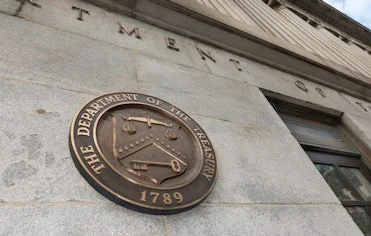
Is Your $200 Transaction Putting You on a Government Watchlist? What You Need to Know
As the U.S. government initiates new financial surveillance measures, millions of Californians and Texans face a daunting reality: transactions as small as $200 could now land individuals on a government watchlist. This dramatic shift, announced by the Financial Crimes Enforcement Network (FinCEN), highlights a growing tension between national security concerns and the financial privacy rights of everyday Americans.
On April 15, 2025, the Department of the Treasury rolled out a 'geographic targeting order' effective for 30 specific ZIP codes along the Mexico border. Previously, financial businesses were only required to report transactions exceeding $10,000; now, any transaction of $200 or more must also be reported, raising concerns about intrusive government oversight that critics argue could have severe implications for low-income individuals and immigrant communities.

Esperanza Gomez Escobar, a small business owner in San Diego’s Southcrest neighborhood, has taken legal action against the Treasury's new rule, arguing that it violates the Fourth Amendment's protections against unreasonable searches. Her lawsuit, filed in federal court, claims the measure imposes "crushing costs" on businesses while also infringing on the privacy of countless customers who engage in routine transactions like cashing paychecks or sending money to family.
Experts point out the paradox of increased surveillance under the guise of crime prevention—the reality being that this new regulation might ensnare law-abiding citizens while failing to effectively impede criminal activity. According to a critique by the Cato Institute, despite spending billions on compliance and generating millions of reports, the Internal Revenue Service only opened a minimal number of investigations based on these filings.
Rob Johnson, a senior attorney from the Institute for Justice representing Gomez, articulated the ineffectiveness of the policy: "This cash surveillance order casts a staggeringly wide net, but it will catch no big fish." This sentiment resonates with many, as public backlash over previous financial monitoring proposals suggests a growing awareness and concern regarding financial privacy rights.
As communities brace themselves for potential repercussions, the question looms: Will the government’s attempts to thwart illicit trafficking and money laundering compromise the financial security and privacy rights of innocent citizens? Gomez's daughter, Frida Quetzalitl, echoed these concerns, emphasizing the arbitrary targeting of specific ZIP codes while excluding others, urging for fairness over widespread surveillance.
This dramatic policy shift raises a pressing question: How do we balance national security with the right to financial privacy? Americans are encouraged to voice their opinions and concerns, drawing attention to the broader implications of such intrusions into their financial lives.
What are your thoughts on financial surveillance policies that impact everyday transactions? Share your opinions or experiences in the comments below.